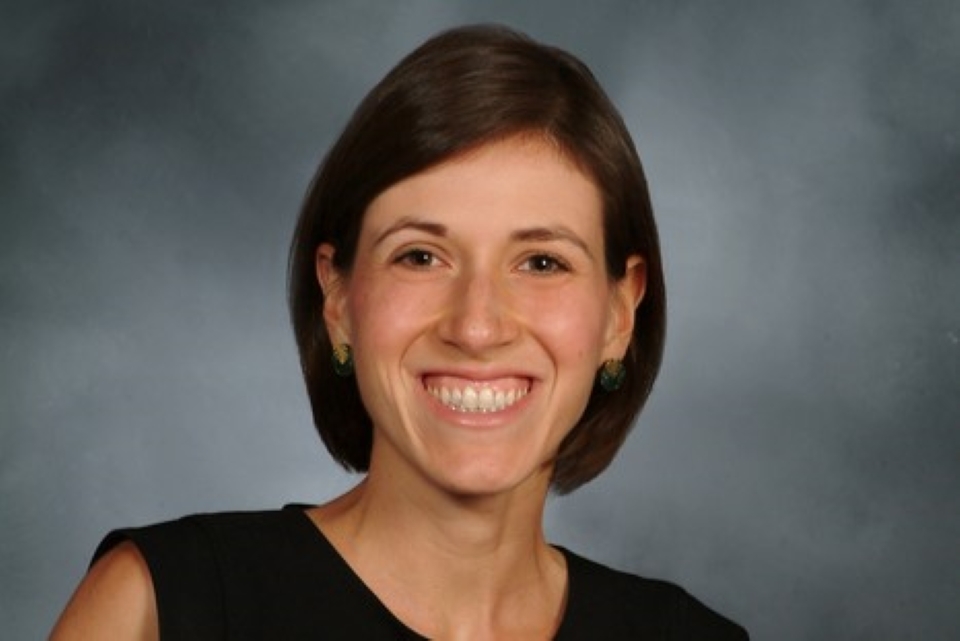Dr. Laura C. Pinheiro, an associate professor of health services research in medicine in the Division of General Internal Medicine at Weill Cornell Medicine, has been named a Cancer Moonshot Scholar by the National Cancer Institute. Dr. Pinheiro’s research program is focused on reducing health inequities for adults with cancer.
The award, a $3.2 million, seven-year R37 Merit grant, will support Dr. Pinheiro’s research program to investigate drivers of cancer health inequities and the role that social determinants of health, the non-medical conditions where we live and work that can affect health outcomes, play in cardiovascular outcomes in Black and white cancer survivors. The goal of this work is to generate evidence to inform interventions designed to eliminate racial health inequities and improve outcomes.
“I’m very excited for this unique opportunity to leverage cardiovascular and cancer data to determine how social determinants of health such as structural racism affect health outcomes,” she said. “I’ve been working in health equity research for some time, but this award represents a shift in my work. It will allow me to support a team of scientists to identify upstream structural factors that can affect how cancer survivors engage with the health care system, which can impact their cardiovascular health. I’m incredibly passionate about this work.”
Among individuals who survive five years from a cancer diagnosis, cardiovascular disease is the leading cause of death. Black adults with cancer have twice the risk of poor cardiovascular disease outcomes compared with white adults with cancer. Dr. Pinheiro hypothesized that structural determinants of health, such as structural racism, are partially responsible for this observed racial disparity.
Dr. Pinheiro’s work will focus on understanding underlying mechanisms of multiple domains of structural racism including unemployment, incarceration, education, uninsurance and economic conditions on cardiovascular outcomes. She will also investigate how these upstream structural factors work through cancer biologic characteristics, such as tumor stage, health behaviors and psychosocial well-being.
During the next seven years, Dr. Pinheiro and her team will use the World Health Organization’s Commission on Social Determinants of Health framework to investigate relationships between social determinants of health and cardiovascular outcomes in Black and white cancer survivors. They will also leverage epidemiologic data from REGARDS, an ongoing, national cohort study sponsored by the National Institutes of Health that enrolled 30,239 Black and white participants from the continental United States between 2003-2007 to understand why Southerners and Black Americans have higher rates of stroke and related diseases that affect brain health.
Dr. Pinheiro will link REGARDS data with 48 cancer registries from across the nation to further elucidate the role of social determinants of health, including structural racism, on the long-term cardiovascular outcomes among a Black and white community-based cohort of nearly 8,000 male and female adults with cancer.
“We have shown that having at least one adverse social determinant of health increases one’s risk of cancer mortality, and Black people are more likely to have at least two social determinants of health than white people. Our goal is to generate new evidence to inform interventions designed to eliminate racial disparities in cardiovascular outcomes during cancer survivorship to reduce health inequity and improve outcomes,” Dr. Pinheiro said.
For this research, Dr. Pinheiro will be collaborating with Weill Cornell Medicine faculty members Dr. Monika Safford, chief of the Division of General Internal Medicine and co-director of the Cornell Center for Health Equity; Dr. Rulla Tamini, chief of the Division of Epidemiology and professor of population health sciences; Dr. Lisa Kern, associate professor of medicine and of population health sciences; and Dr. Parag Goyal, associate professor of medicine, as well as Dr. Tyson Brown from Duke University and Dr. Lisandro Colantonio and Dr. Melissa Smith from the University of Alabama at Birmingham.
“I am thrilled to be named a Cancer Moonshot Scholar, but this award was a team effort,” Dr. Pinheiro said. “I couldn’t have done it without my co-investigators on this grant application.”

